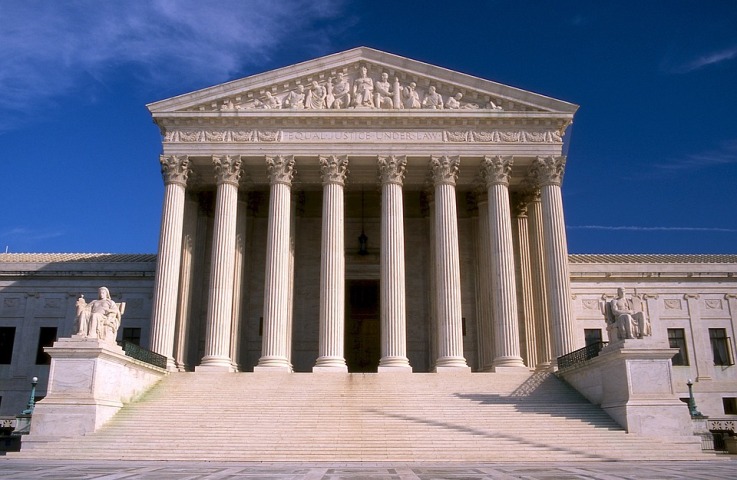U.S. Supreme Court's Brett Kavanaugh issues first opinion in arbitration case
U.S. top court's Kavanaugh issues first opinion in arbitration case

- Country:
- United States
The U.S. Supreme Court's newest member, Brett Kavanaugh, issued his first written opinion on Tuesday as the justices in a unanimous ruling bolstered companies' ability to use arbitration to resolve disputes with customers or other businesses. The court decided 9-0 to throw out a lower-court ruling that had kept a case involving dental equipment companies from being resolved through arbitration because the court had determined the demand for arbitration was groundless.
Newly appointed justices are generally assigned non-controversial, unanimous cases as their first opinions. Kavanaugh joined the court in October after a raucous confirmation process during which he had to fend off accusations of sexual assault by California university professor Christine Blasey Ford. He was the second conservative justice named to the court by Republican President Donald Trump, after Justice Neil Gorsuch.
Kavanaugh's appointment solidified a 5-4 conservative majority on the court. He replaced retired Justice Anthony Kennedy, a conservative who sometimes sided with the court's liberals on social issues like abortion. The arbitration case involved price-fixing claims lodged by Plano, Texas-based dental equipment distributor Archer and White Sales Inc against other manufacturers and distributors.
It centred on whether courts can prevent arbitrators from deciding if an issue can be arbitrated at all. Companies prefer to arbitrate claims because it is cheaper and faster than litigation in court, which is harder to fight and carries a greater risk of hefty damages awards by juries.
When a contract allows arbitrators to decide whether a dispute can be resolved through arbitration, "a court may not override the contract," Kavanaugh said on Tuesday, explaining the decision.
Although Tuesday's ruling was Kavanaugh's first opinion for the court, his first known vote as a member of the court was in December when he joined other justices to reject appeals by Louisiana and Kansas seeking to end their public funding to women’s healthcare and abortion provider Planned Parenthood through the Medicaid program. (Reporting by Andrew Chung Editing by Bill Trott)
(With inputs from agencies.)
- READ MORE ON:
- magistrates' court
- family court
- arbitration
- international arbitration
- first tennessee
- fitness first
- first choice
- brett kavanaugh
- member of congress
- member of parliament
- member state
- tuesday
- the tuesday special
- tuesday morning
- dispute resolution
- trade war
- trade agreement
- kavanaugh
- member
- disputes
ALSO READ
French PM tells Canada: CETA free trade agreement is 'win-win' deal for both sides
Next round of talks on proposed India-Peru trade agreement likely in Jun
China and EU trade tensions risk a full trade war, European Chamber president warns
Indian team in UK for advanced negotiations on India-UK Free Trade Agreement
FACTBOX-Trump's second-term agenda: revenge, trade wars, mass deportations










